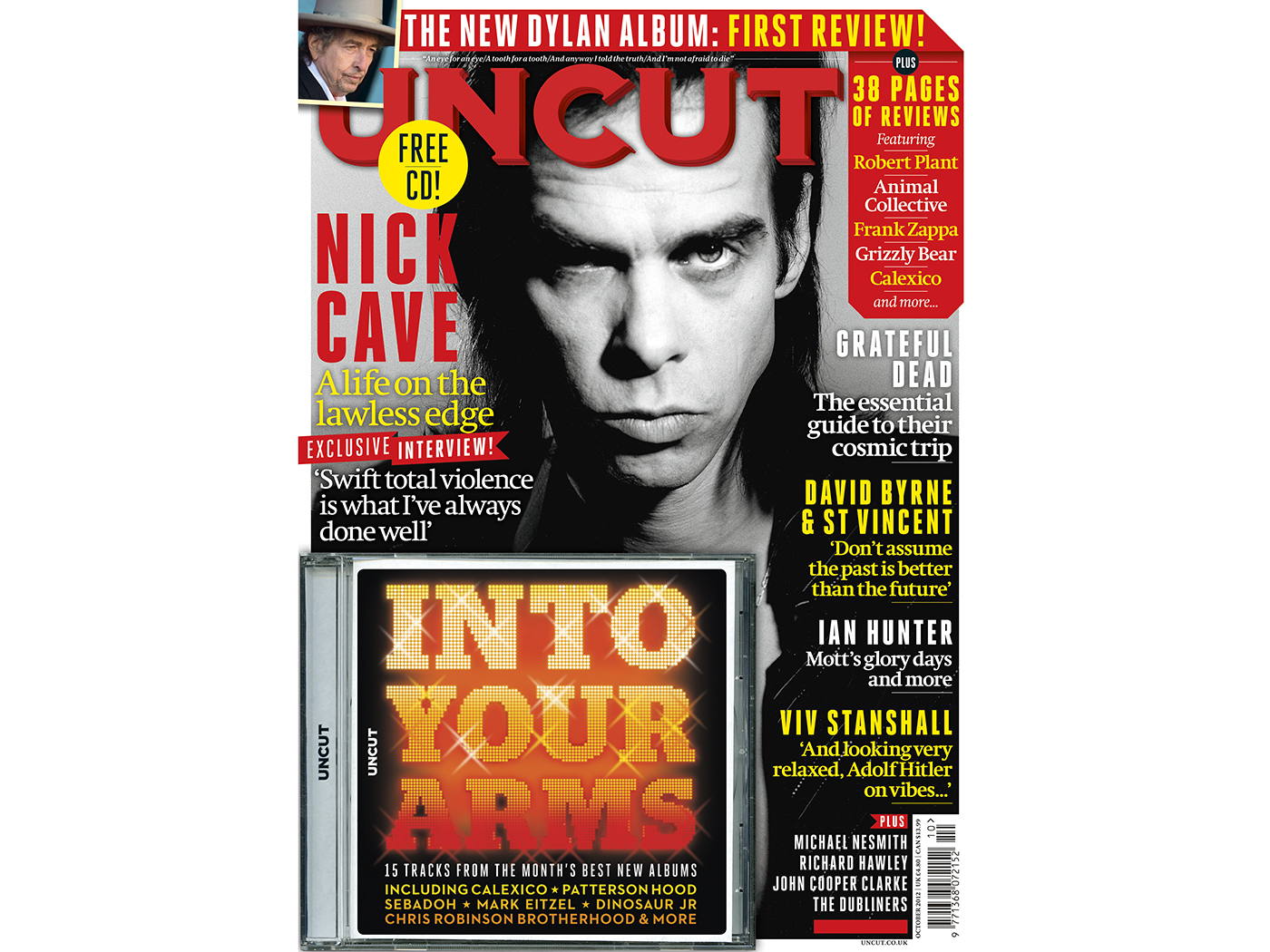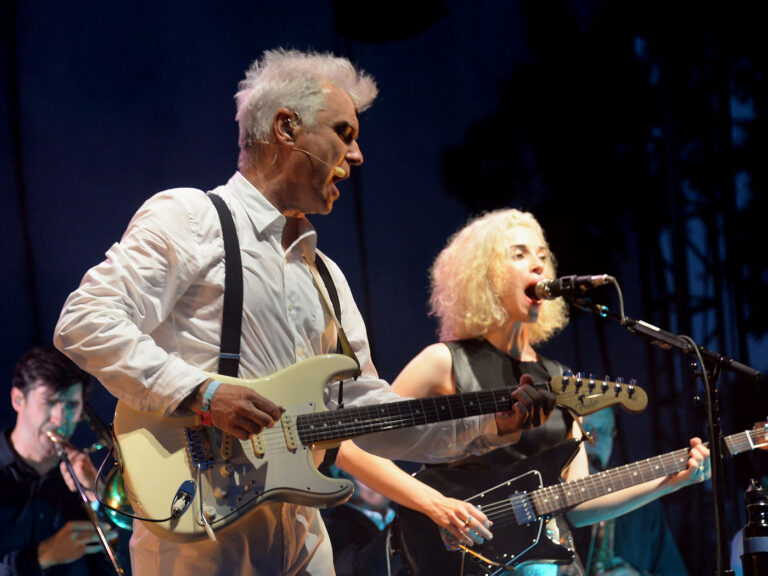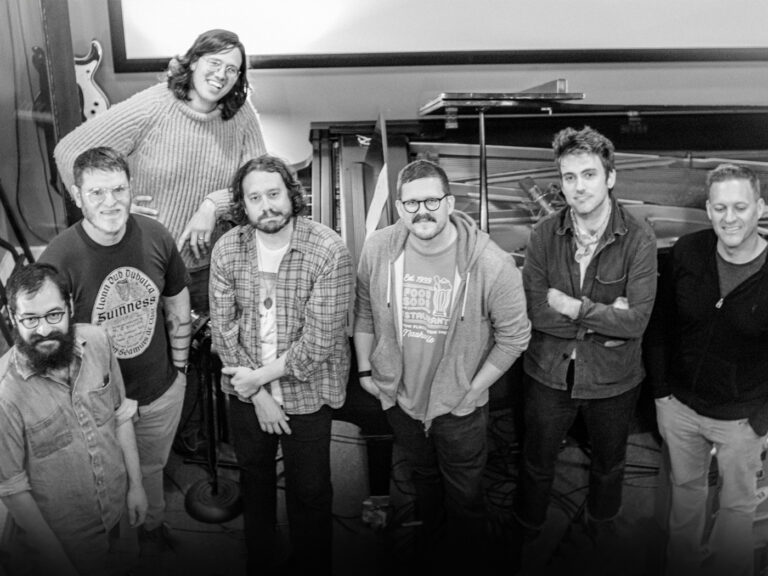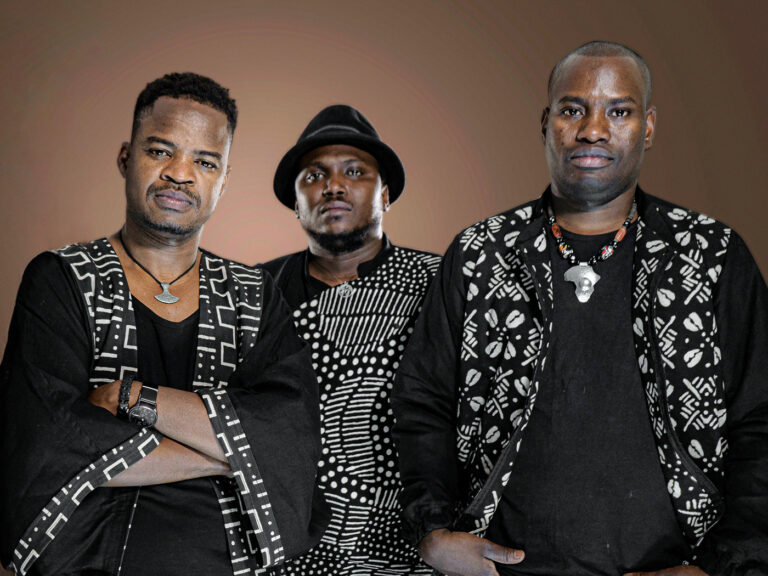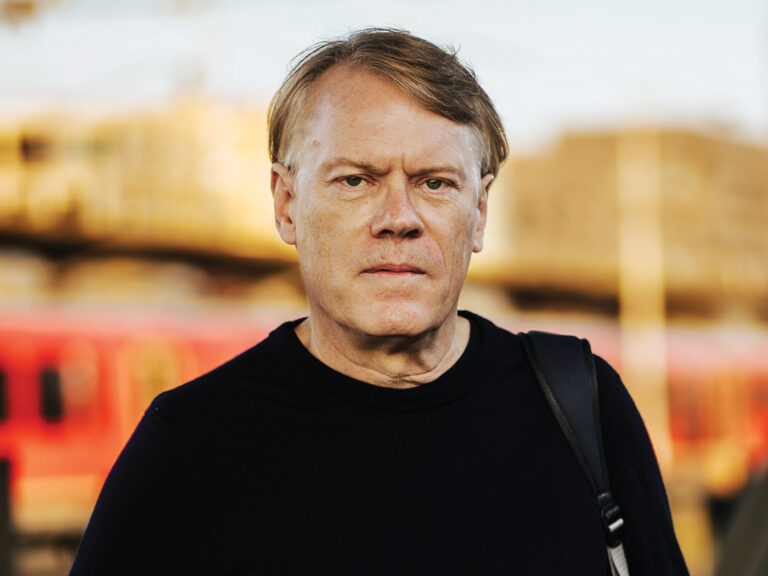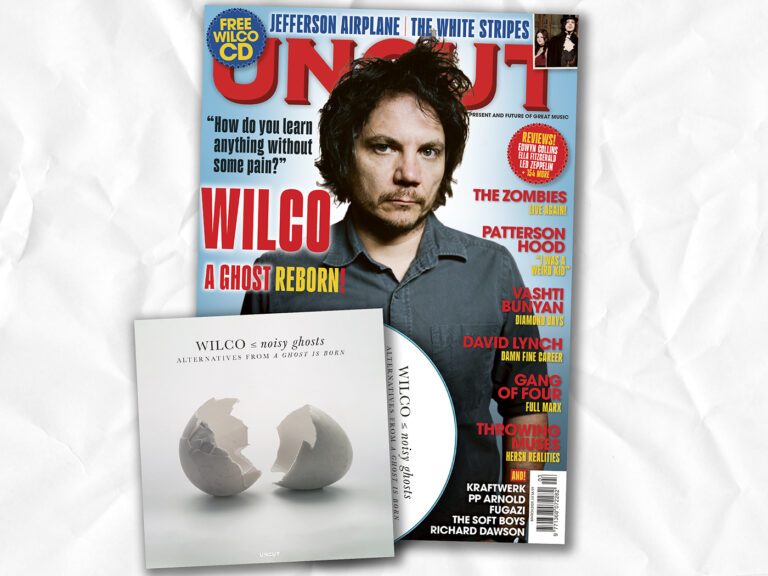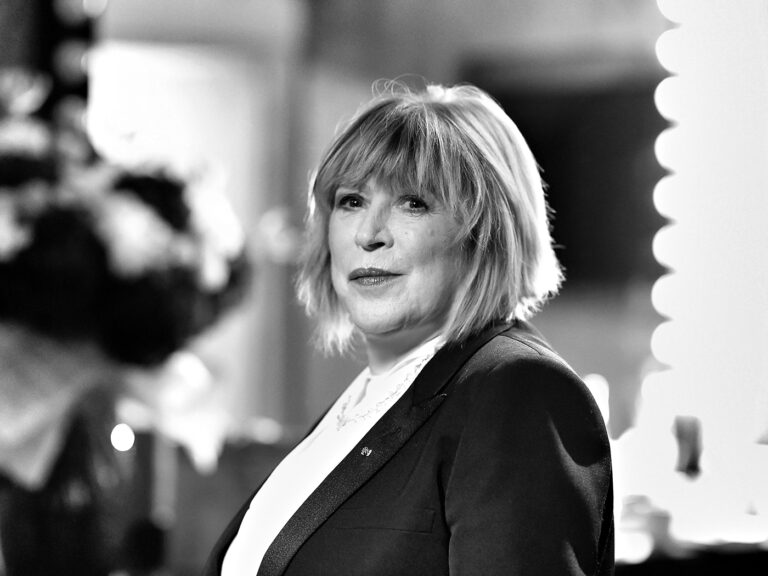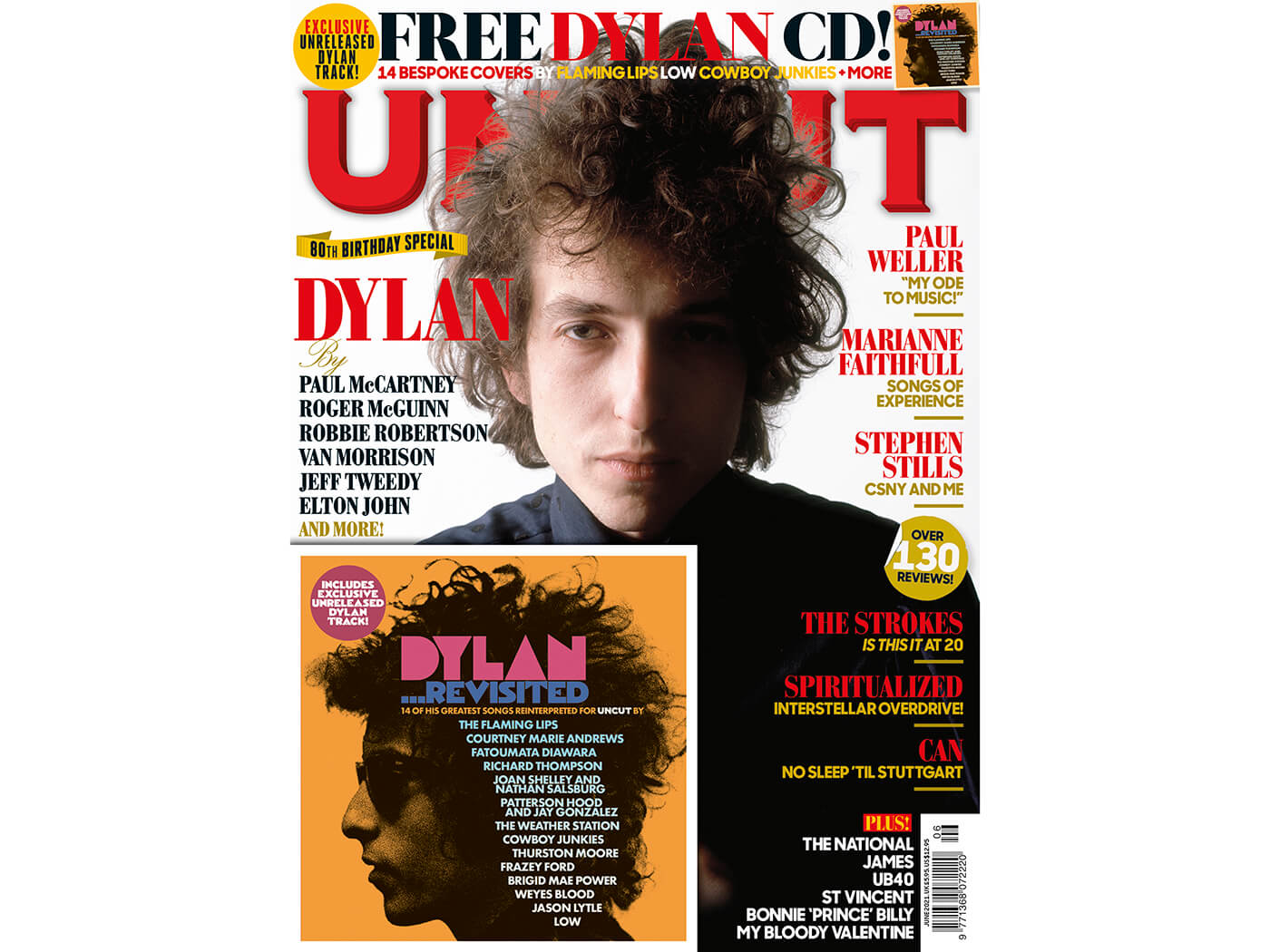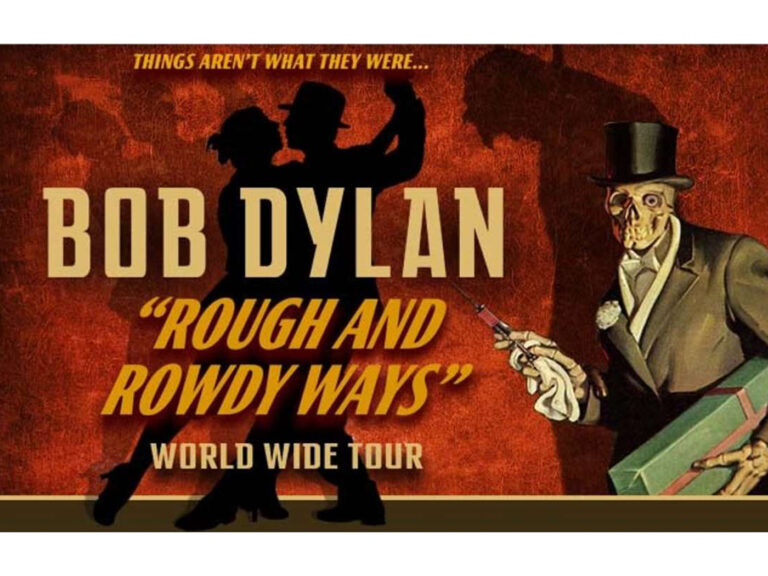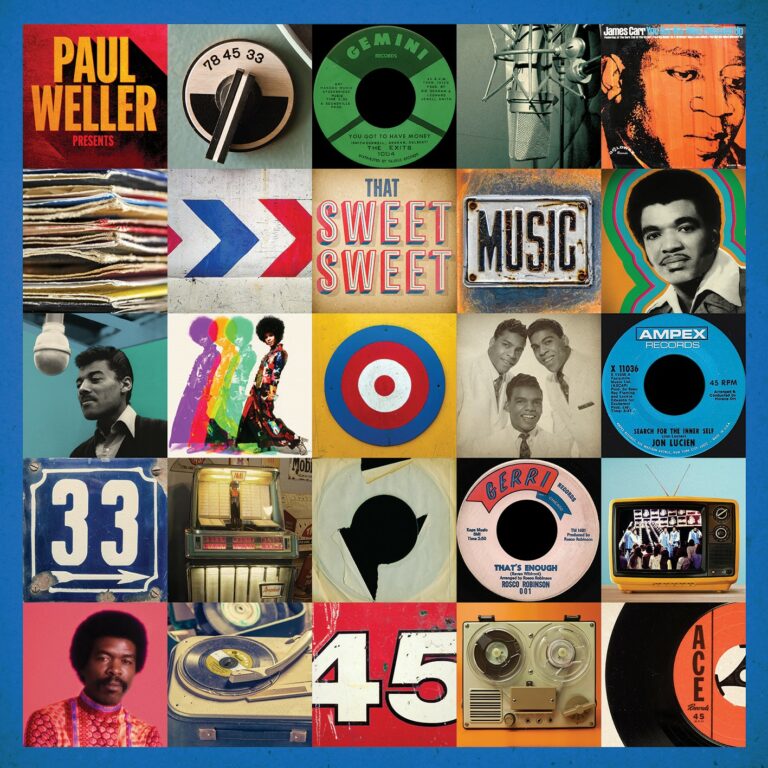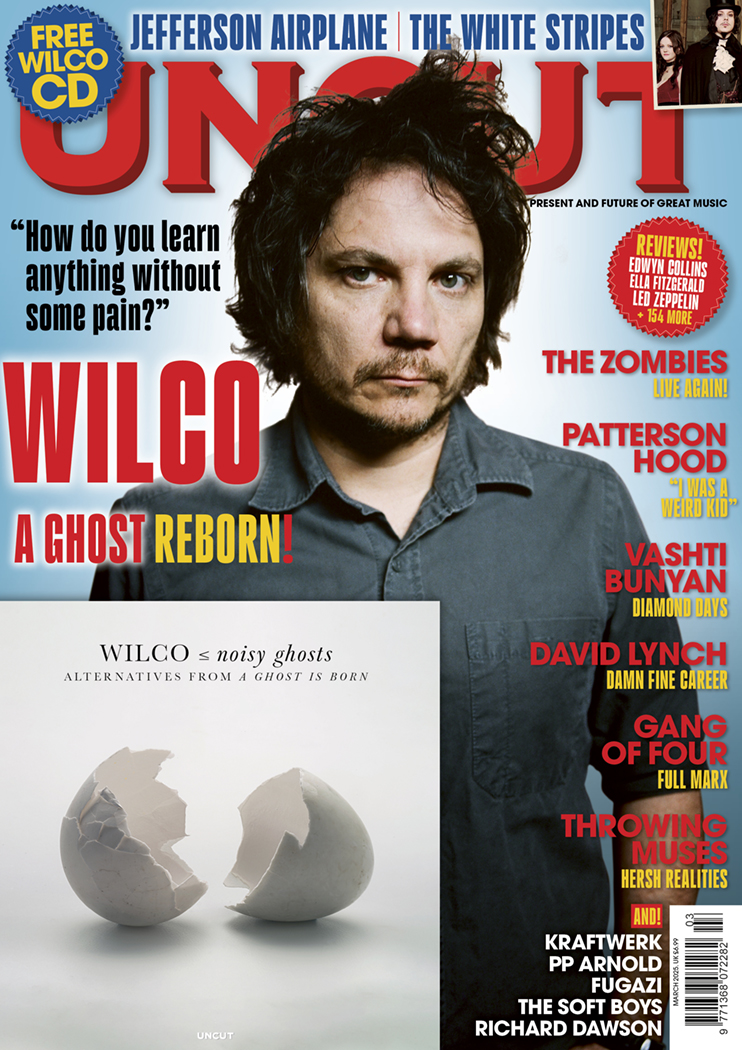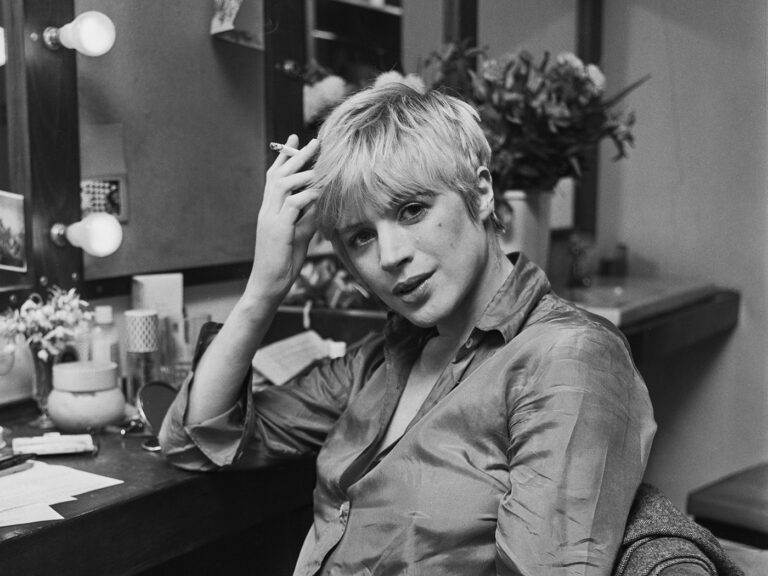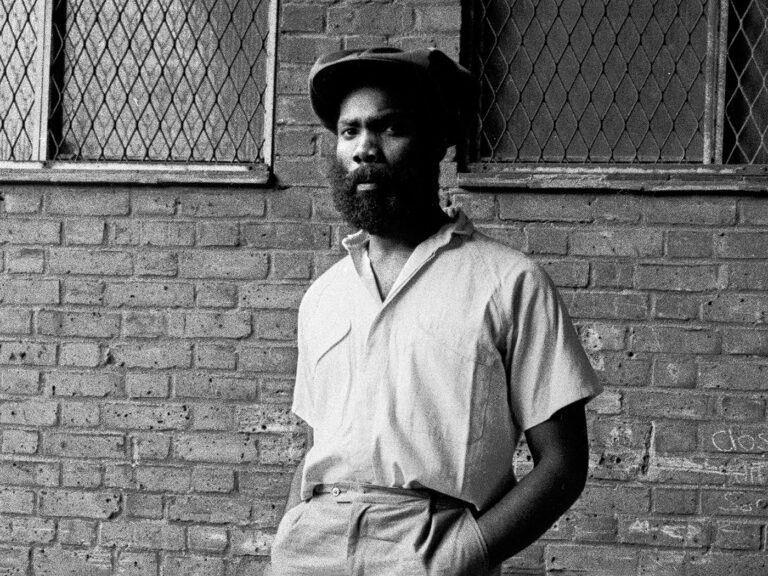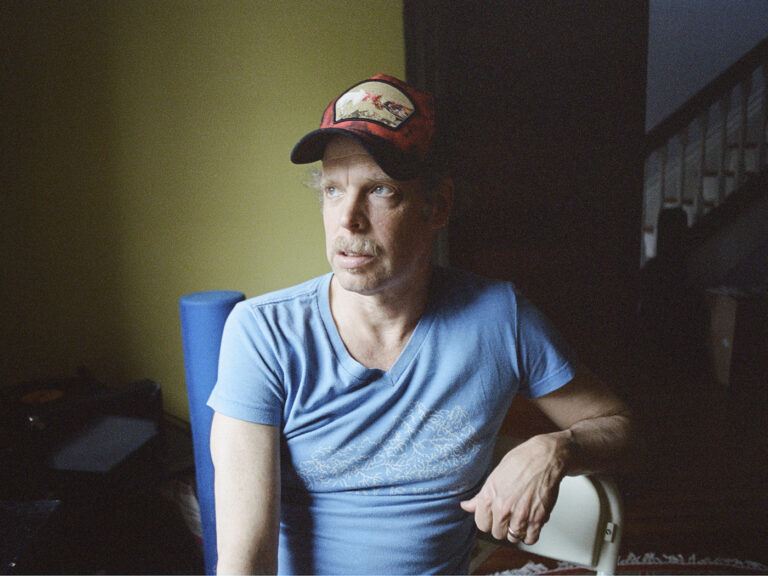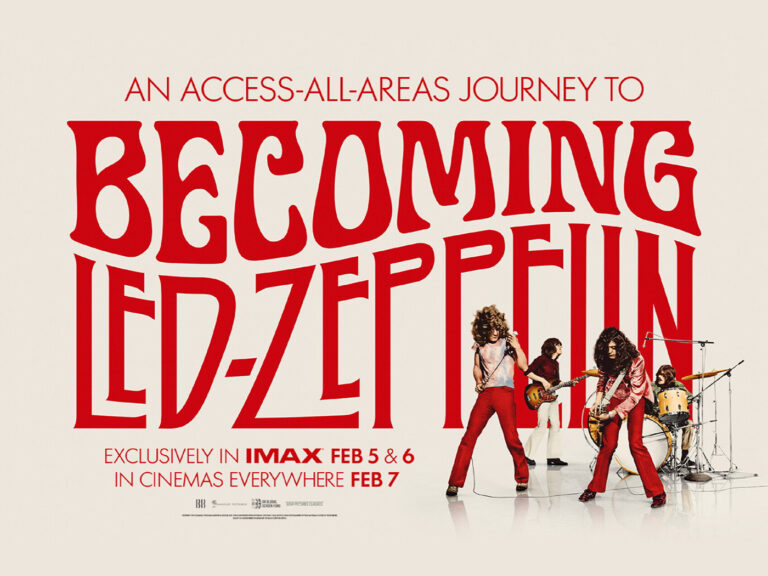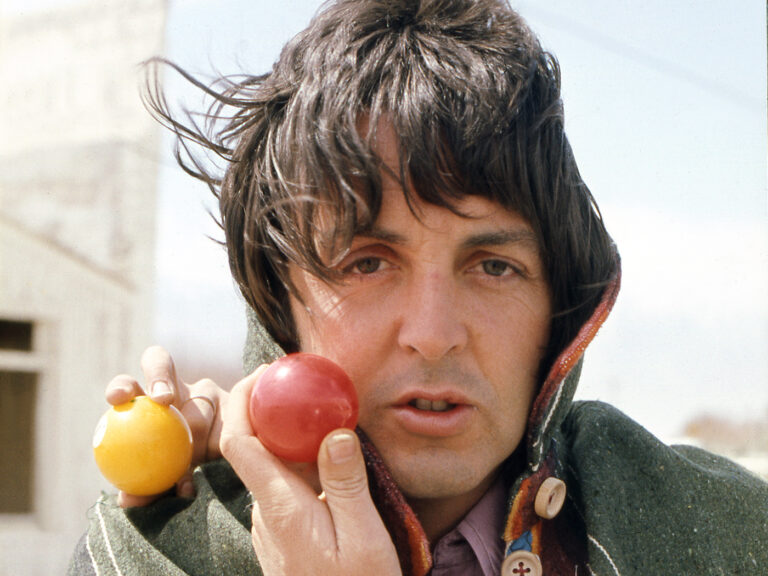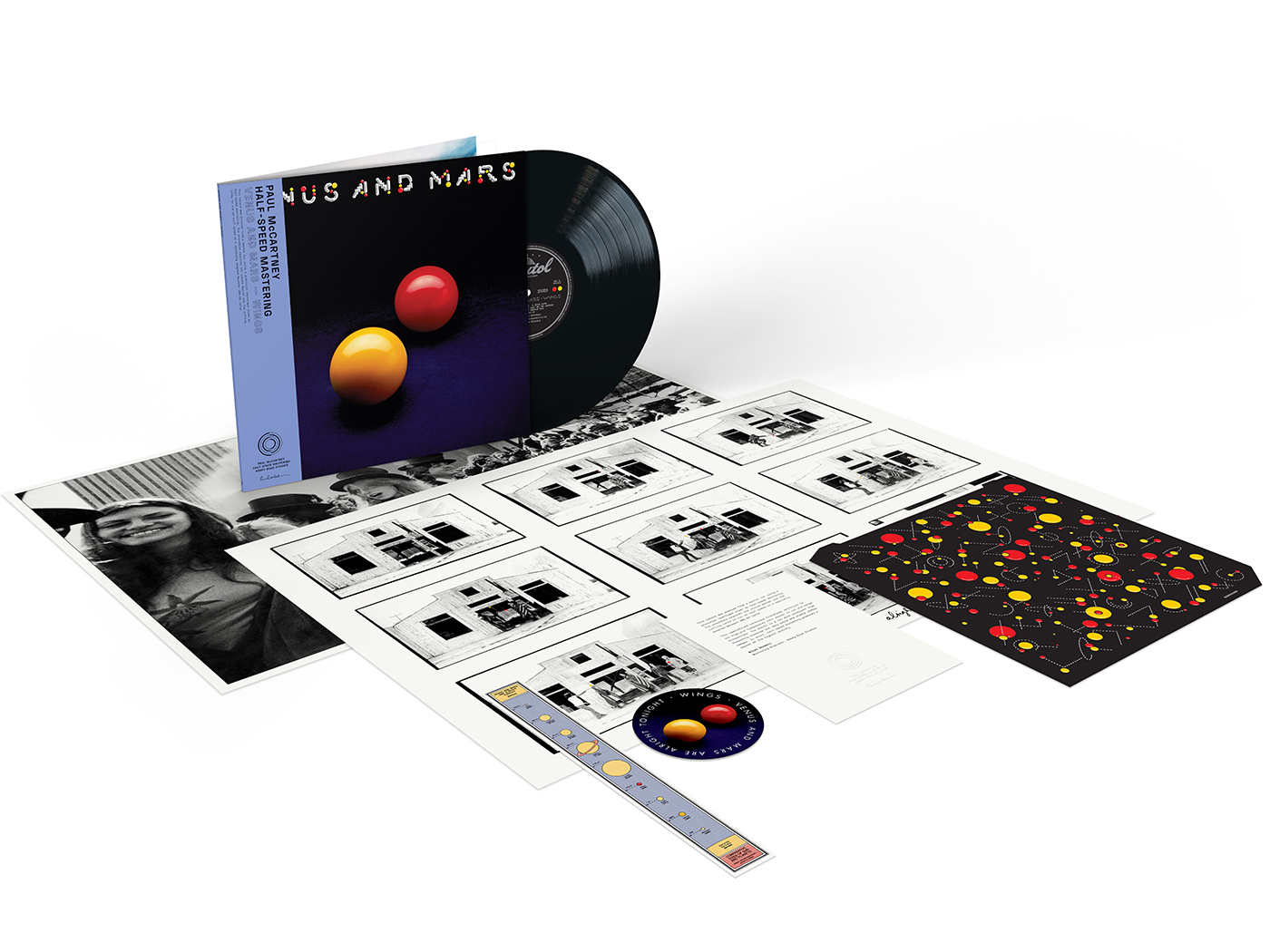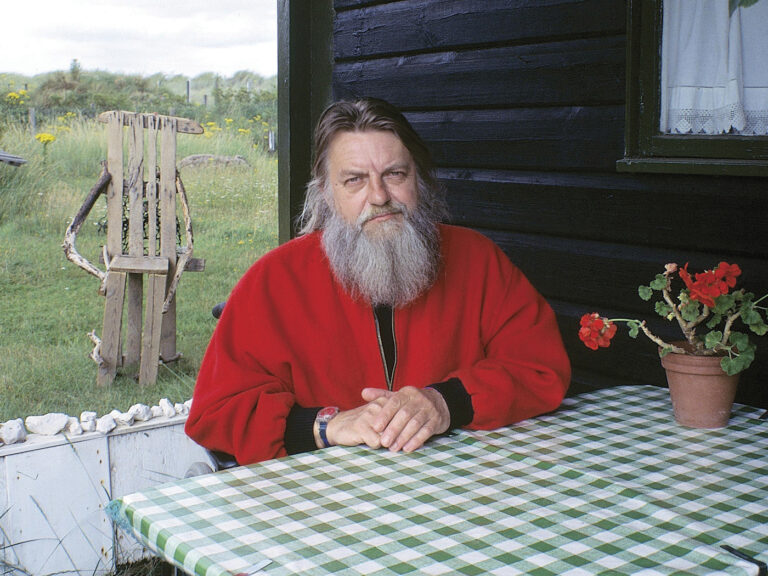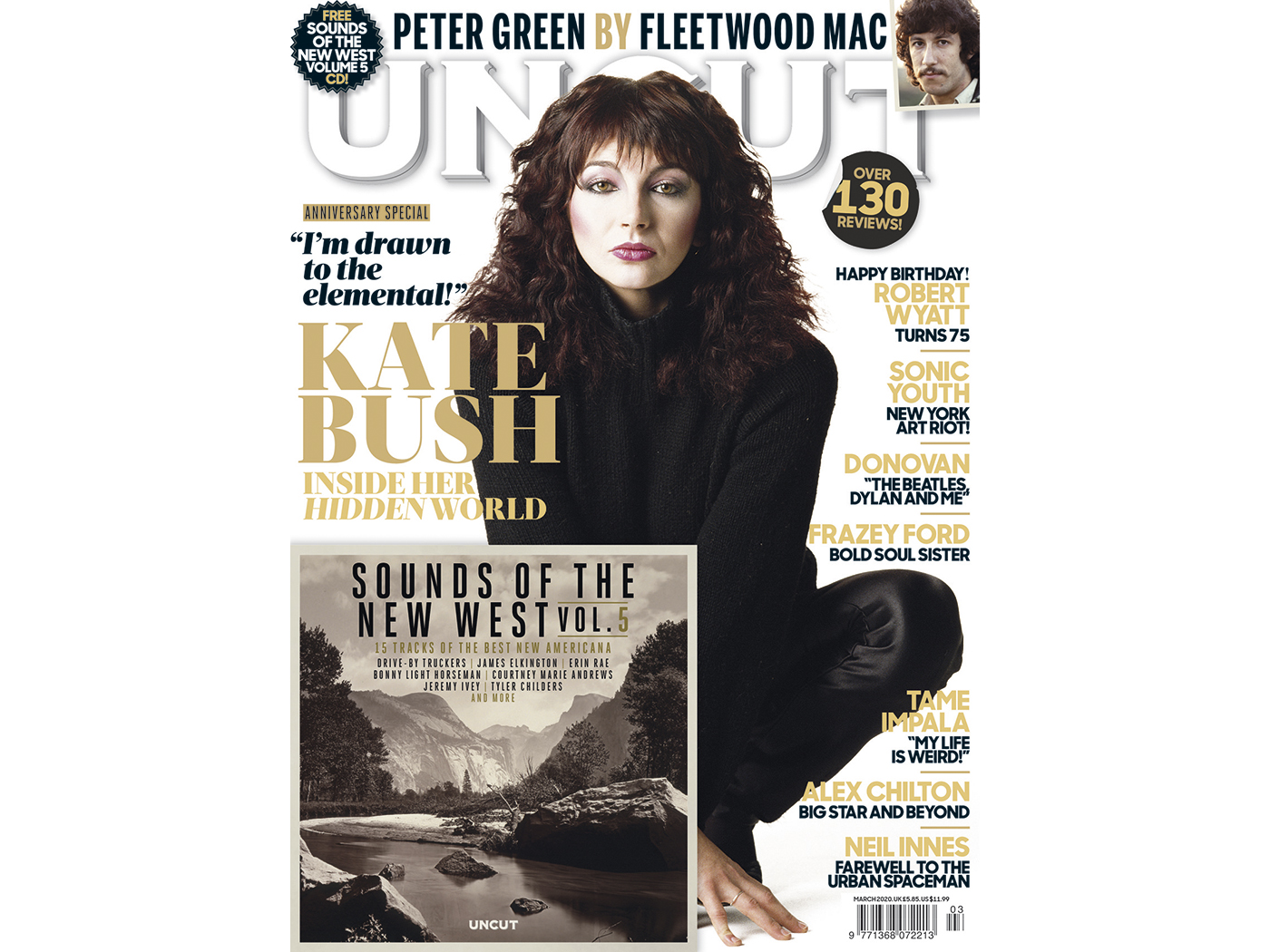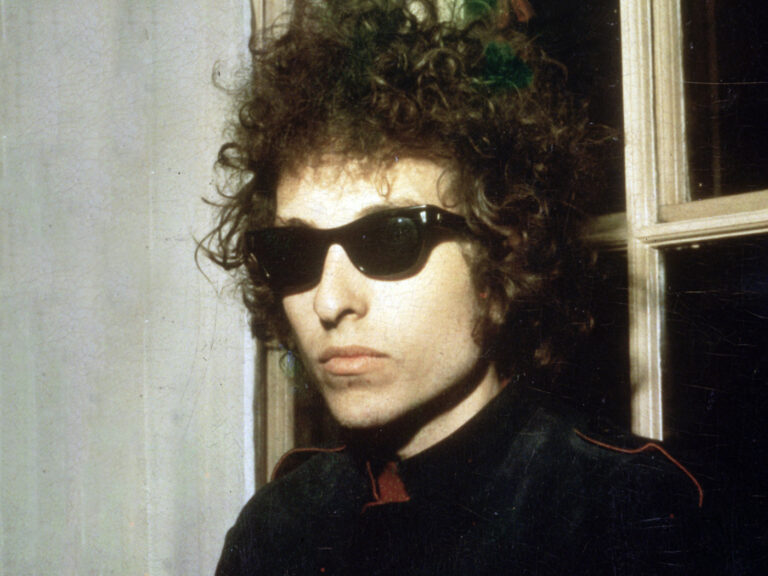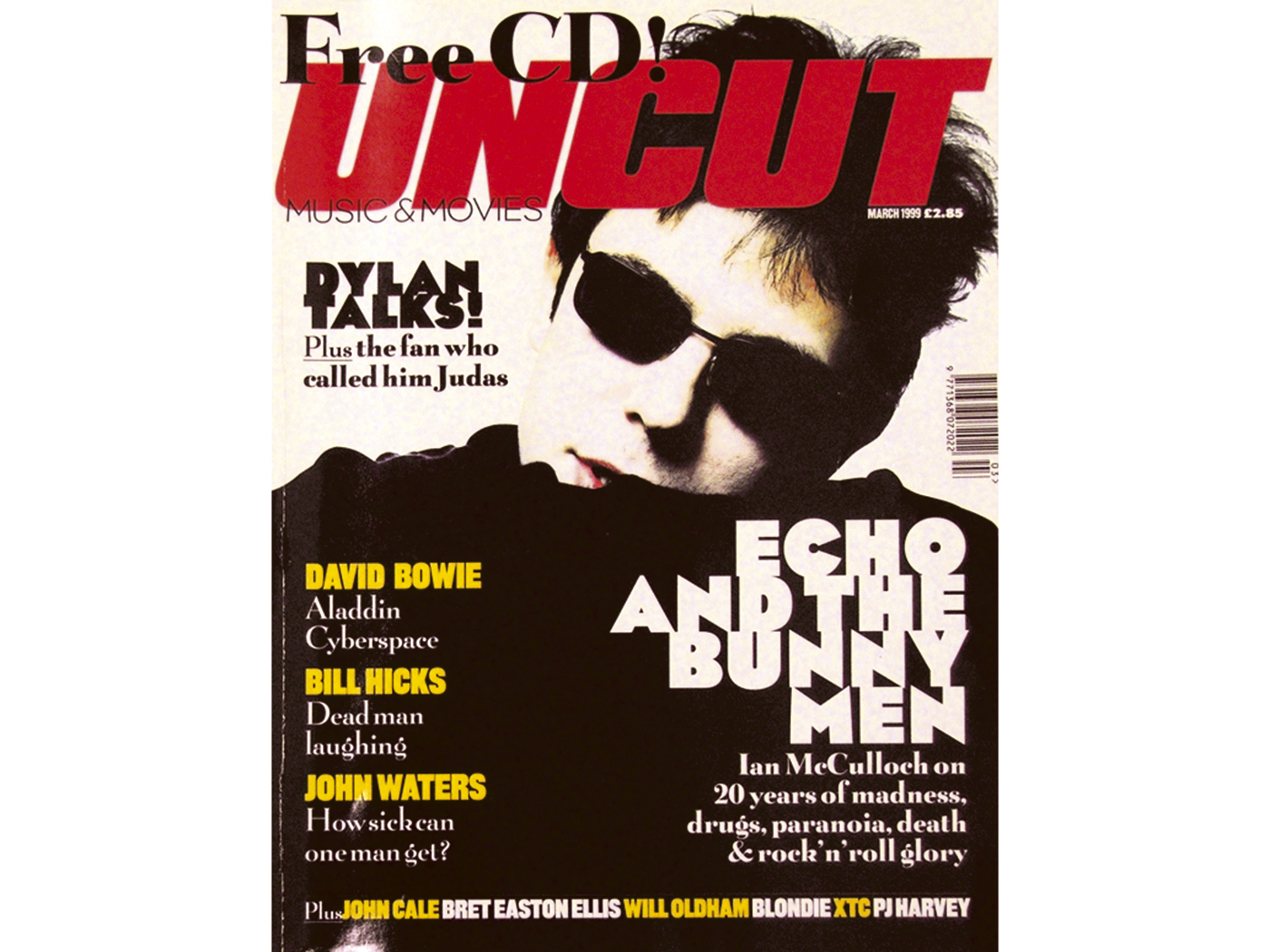From Uncut’s October 2012 issue [Take 185]. We travel to David Byrne’s office in New York to meet Byrne and Annie Clark, aka St Vincent, to discuss their collaborative album, Love This Giant...
It could be the heat doing crazy things to my brain, but as David Byrne paces around the office of his record label, Todo Mundo, I am struck by a strange thought. In his blue and white wide-wale seersucker trousers with matching braces, short-sleeve white cotton shirt and white flip-flops (to say nothing of his white hair and gradually whitening eyebrows), David Byrne resembles nothing so much as a giant ice lolly.
No-one, not even a freeze pop, wants to be in New York City in the middle of July, and today is why. It’s 100° Fahrenheit with 65 per cent humidity: walking in Manhattan is like trudging through a swamp of other people’s sweat and diesel exhaust. Then there’s the smell. Even on the genteel streets of Todo Mundo’s SoHo neighborhood, which is otherwise populated by swanky Comme Des Garçons boutiques, the fumes of dead rodents exude their unmistakable perfume like the devil’s own bougainvillea.
Although he rode his bike to work through these stifling streets (as he always does — after Lance Armstrong, Byrne is probably America’s most famous bicyclist), Byrne is totally cool and unruffled. A striking contrast, in fact, to the familiar sweaty, anxiety-ridden salary man he portrayed in Talking Heads’ video for “Once In A Lifetime”. Byrne’s Popsicle-like appearance today is only accentuated by the fairground cornucopia of tchotchkes and ephemera that is the Todo Mundo office. The walls are adorned with paintings of the apocalyptic visions of self-ordained minister Howard Finster (one of which was the cover for Talking Heads’ Little Creatures album), game fish taxidermy, pistol range targets complete with bullet holes, a Christopher Columbus jigsaw in which the explorer’s face has been replaced by a comic book’s metal skull, and a photo of an astronaut holding a cassette of Talking Heads’ first album. There is a shelf of a bookcase that functions as a shrine to the caprices of consumerism (at least to an American): tins of spotted dick and mushy peas, odd liqueurs from Turkmenistan, baldness cures, bongs in the shape of skeletons, and miniature statuettes of lucha libre wrestlers from Mexico. Elsewhere, a rather hideous and obscenely phallic cutaway model of an earthworm’s innards sits on top of a television set, conjuring long repressed memories of traumatic biology class dissections.
Byrne’s office may be a reliquary of capitalist detritus, but interior decoration aside, he’s never been interested in resting on his laurels and mummifying his past. Byrne could easily fund a comfortable retirement by donning The Big Suit from Stop Making Sense and churning through “Psycho Killer” and “Burning Down The House” until he needs to put his dentures in a glass. Instead, unlike most of his peers, he constantly has his ear to the underground and engages in quirky, charming art projects (like hooking up an old pipe organ to a disused building’s plumbing and ceiling beams so visitors can “play” the building) in order to satisfy his perpetually restless polymath imagination.
“In order to feed my own creative juices, part of that process is being inspired by what other people are doing,” Byrne says. “Not that I want to copy them or rip them off, it’s just keeping my juices flowing, hearing what’s new, hearing what people are doing. I do presume that keeping the creative juices flowing means that you have to do new things fairly often and challenge yourself and get out of your comfort zone, all those sorts of things, which may be a bit much to ask for people who have achieved a certain level of success. They might feel like, ‘I did it. Isn’t that good enough?’”
What’s been catching Byrne’s ears of late is the new wave of ambitious, intelligent indie rock coming out of New York: Dirty Projectors, The National, Sufjan Stevens, and especially St Vincent, the deceptively dark chamber-rock project of Texan exile and former Polyphonic Spree member Annie Clark, with whom he has collaborated on a rather fabulous new album, Love This Giant.
After performing with many of this new guard at the Dark Was The Night charity concert in May 2009, Byrne declared on his blog that they represented the “triumph of art rock”. “I said that? Oops,” he says today, half-joking. “I think I wrote at the time on my blog that with that crowd, Annie included, the ambition wasn’t, ‘I want to be a star. I want to throw televisions on the floor and be driven by chauffeurs.’ It was really, ‘What excites me the most is making great music.’ That’s the vibe I got from this generation of musicians. That’s great. That seems incredibly healthy, besides the fact a lot of them are making really good music.”
Shortly after the Dark Was The Night concert, Byrne and St Vincent were approached by Housing Works, a charity/bookstore in New York, to collaborate on a night of music to be performed at the shop. Byrne, both a relentless collaborator and a “dweeby fan” of St Vincent, naturally agreed. Although on the surface St Vincent’s baroque, fragile songs seem to be an odd match with Byrne’s open-to-anything MO, they actually approach their craft in much the same way: Clark is an as avaricious consumer of art and culture as Byrne, looking for inspiration anywhere she can find it, from Marilyn Monroe’s diaries to the peyote surrealism of Alejandro Jodorowsky’s movies, and her perhaps unexpected talent for guitar shredding has landed her gigs with everyone from Sufjan Stevens to Downtown enfant terrible Glenn Branca.
But as they started to throw around musical ideas, they ran into a problem: how do you construct a program of music for a tiny space that isn’t two hippies with acoustic guitars singing campfire songs? “I happened to be really inspired by the timbre of brass at the time and hadn’t really worked with it much,” explains Clark, who’s joined Byrne in the Todo Mundo offices. “I was also thinking that this space would be conducive to a small brass band and just a limited PA, because it’s a bookstore, so you’re not going to bring the bombast. Then we kept writing and kept going, the band got bigger and bigger [laughs]. There’s also something nice about brass in that it can be kind of timeless. It’s not like we were going for a genre study in any particular mode. It wasn’t like, ‘Let’s make a…’”
“Dubstep?” Byrne offers.
“Dubstep album,” Clark continues, laughing, “or this is coming straight from Bourbon Street. We were trying to do something a little new with it. What is dubstep anyway?” she asks semi-facetiously.
FIND THE FULL INTERVIEW FROM UNCUT OCTOBER 2012/TAKE 185 IN THE ARCHIVE
